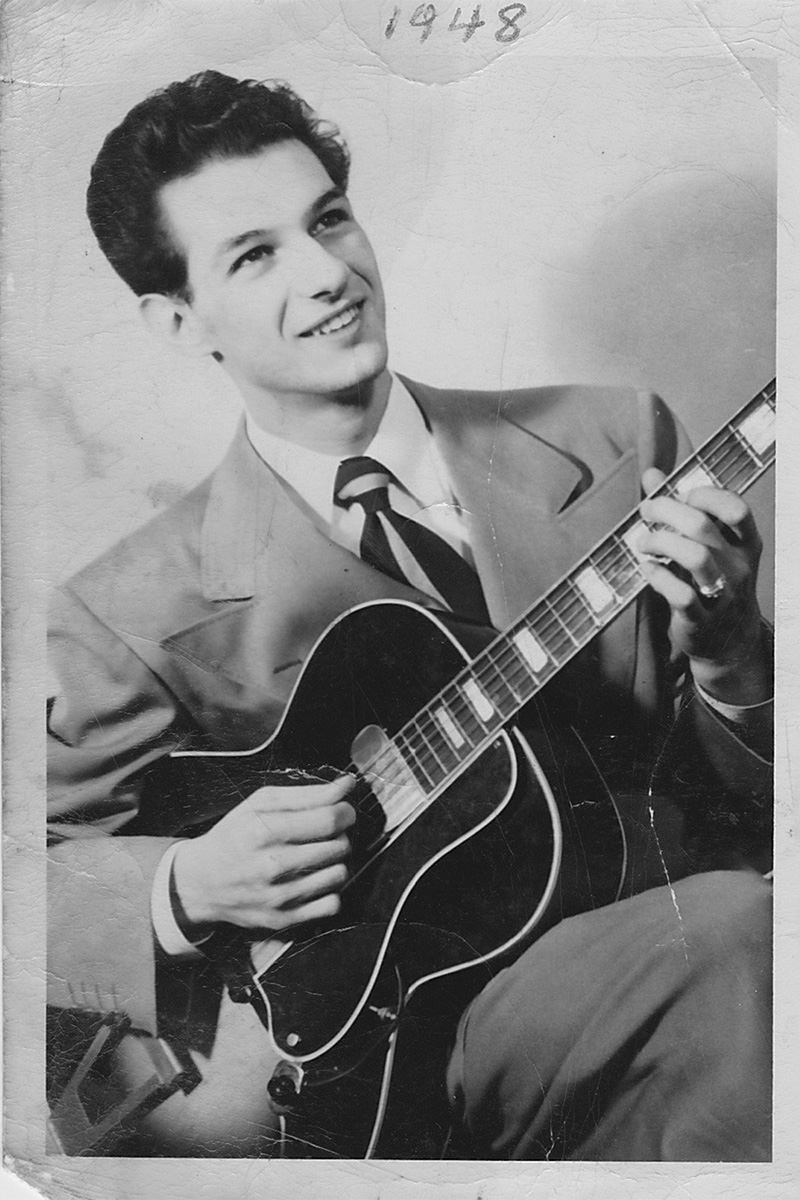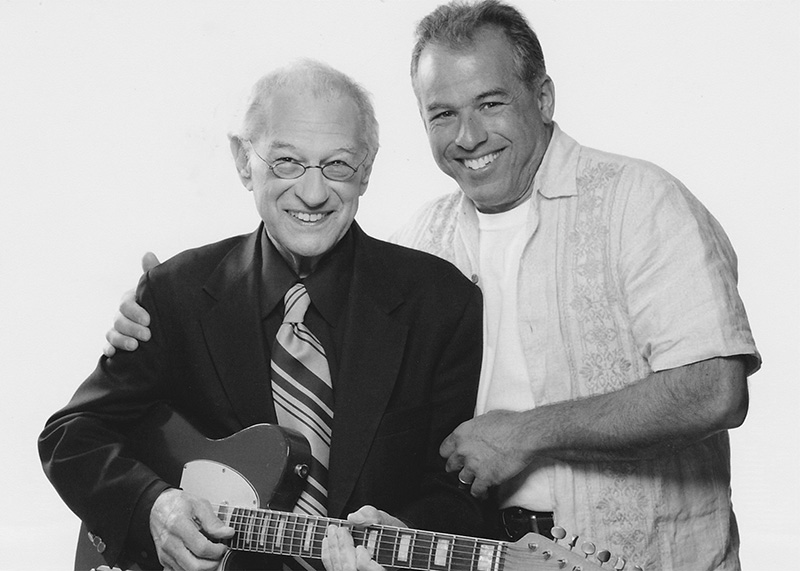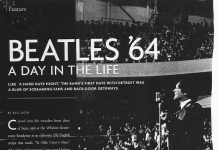
As a member of Motown’s Funk Brothers, Joe Messina helped lay the foundation for some of the most iconic and influential recordings pop music has produced in any era or genre, either before or since the heyday of Hitsville. Yet, for much of his career, Messina and his studio brothers remained largely anonymous, even among the most ravenous fans of Berry Gordy’s arsenal of soulful hitmakers.Ěý
Well, that suited the longtime Warren resident just fine. Standing in the shadows of Motown? Sure. Why not? It was just another gig, after all.
Messina, who died April 4, at the age of 93, at his son Joel Messina’s home in Northville, was — for lack of a better phrase — a musician’s musician. A jazz player first and foremost, he was already well established in Detroit by the time Gordy came knocking at his door in the late 1950s. Messina had cut his teeth on the nightclub circuit, live television commercials, and the Soupy Sales daytime and nighttime shows, where he played with jazz greats like John Coltrane and Charlie Parker. Ěý Ěý
He accepted Gordy’s offer on the condition that his time in the recording studio would not interfere with his television work.Ěý
From the late 1950s to the early 1970s, Messina and fellow axmen Robert White and Eddie Willis forged the classic three-guitar sound that can be heard on countless hit records by Stevie Wonder, Marvin Gaye, The Temptations, the Four Tops, The Miracles, The Supremes, and an array of other Motown greats. And while all three players brought something unique to the sessions, it was mild-mannered Messina who really had the goods. He was a skillful sight reader with a bebop playing style and an uncanny ability to find just the right place to insert himself into an arrangement.
“Joe was the most schooled of the Funk Brothers,” says Allan Slutsky, author of Standing in the Shadows of Motown: The Life and Music of Legendary Bassist James Jamerson and producer of the acclaimed 2002 documentary Standing in the Shadows of Motown, which shined a national light on the contributions of Messina and the rest of the Funk Brothers for the first time. “He was probably the best reader there.”
While he is best known for his work at Hitsville, Motown wasn’t necessarily representative of Messina’s talent, nor was it his true musical love, friends say.
“I have yet to hear a recording that Joe has been on where he plays the way I know him to play,” says Bruce Miller, a hugely successful Hollywood composer and lifelong friend of Messina. “That’s the most frustrating thing to me.” Ěý

Miller was only 13 when he started taking guitar lessons from Messina in the furnace room of the Soupy Sales studio. “He was always my hero,” Miller says. “He was different from other guitar players I had seen. He did things they couldn’t do.”
Despite this enormous talent, Miller says Messina had little desire for the spotlight — and even less for leaving Detroit — turning down offers to tour with everyone from Coltrane to Parker to Phil Collins over the course of his career. It’s the same laid-back nature that probably made it easy for Messina to part ways with Motown in the early 1970s, when operations moved to the West Coast. Instead of packing his bags, he hung up his guitar, bought a couple of car washes and a jewelry store, and spent time with his family.
“He was an easygoing guy, but he always had an excellent instinct for when it was time to move on,” says Messina’s longtime friend Steve Shepard.Ěý
In his post-Motown years, Messina continued to play music locally, teaching himself the harmonica and eventually picking up the guitar again. And he and the rest of the Funk Brothers got the much deserved, though beyond belated, recognition they had earned. Following the wave of attention generated by the 2002 documentary, the musicians were given a Grammy lifetime achievement award and a star on the Hollywood Walk of Fame — feathers in Messina’s cap that he certainly enjoyed but would never let go to his head.Ěý
“He would never brag about any of it,” Joel says of his father. “Humble doesn’t even begin to describe who he was. Even when they’d try to poke the beehive during the making of the film, he never had a bad word to say about anyone.”
Messina was essentially a kind, good-natured Midwestern guy who also just happened to be a musical virtuoso. He adored his wife, Josie, for whom he cared until she died of multiple sclerosis in 2009; his two children, Joel and Janice; and his four grandchildren and five great-grandchildren. He lived in the same Warren home he raised his family in until the last three weeks of his life. He drove a Ford Focus. He loved hosting jam sessions with fellow local musicians. And he had no use for “stinking thinking.”
“He was one in a million,” Joel says. “He made everyone feel like they were No. 1.” The motto Messina instilled in his children as they were growing up? “Stay positive and smile,” Joel says.
This story is from the July 2022 issue of ĚÇĐÄvlog°˛×ż°ć. Read more stories inĚýour digital edition.Ěý
|
| Ěý |
|








